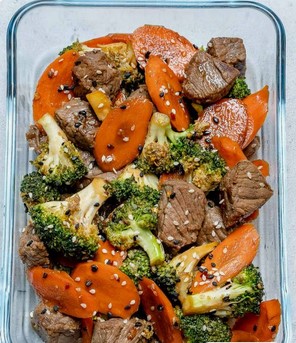Introduction:
In the hustle and bustle of modern life, maintaining high energy levels is essential for keeping up with daily demands and pursuing our passions. Yet, the quest for sustained vitality often leads us to rely on quick-fix solutions like caffeine or sugary snacks, which provide fleeting bursts of energy followed by inevitable crashes. Fortunately, there’s a better way to fuel our bodies for sustained performance and vitality: through the power of nutrition. In this comprehensive guide, we’ll delve deep into the world of energy-boosting foods, exploring the science behind their efficacy and providing practical tips for incorporating them into your daily routine. Get ready to supercharge your energy levels and unlock your full potential!
Section 1: Understanding Energy and Nutrition
In this section, we’ll lay the foundation for understanding how nutrition impacts energy levels. We’ll explore the role of macronutrients like carbohydrates, proteins, and fats in providing fuel for our bodies, as well as the importance of micronutrients like vitamins and minerals in supporting cellular energy production. We’ll also discuss the concept of glycemic index and how it affects blood sugar levels and energy fluctuations throughout the day.
Section 2: Complex Carbohydrates: Nature’s Fuel
Complex carbohydrates are the body’s preferred source of energy, providing a steady and sustained release of glucose to fuel our muscles and brain. In this section, we’ll explore the different types of complex carbohydrates, including whole grains, fruits, vegetables, and legumes, and discuss their unique benefits for energy production and overall health. We’ll also provide practical tips for incorporating complex carbohydrates into your meals and snacks to support optimal energy levels.
Section 3: Protein Power: Building Blocks for Energy and Muscle
Protein is essential for building and repairing tissues, including muscles, but it also plays a crucial role in energy production and regulation. In this section, we’ll explore the importance of protein for sustained energy levels, muscle recovery, and satiety. We’ll highlight the best sources of protein, including lean meats, fish, poultry, dairy, eggs, and plant-based options like tofu, tempeh, and legumes. We’ll also discuss the concept of protein timing and how to optimize your protein intake throughout the day for maximum energy and performance.
Section 4: Healthy Fats: The Key to Sustained Energy and Brain Health
Contrary to popular belief, fats are not the enemy when it comes to energy production. In fact, healthy fats are essential for supporting cellular function, hormone production, and brain health, all of which are critical for maintaining energy levels and cognitive function. In this section, we’ll explore the different types of fats, including monounsaturated, polyunsaturated, and omega-3 fatty acids, and discuss their unique benefits for energy production and overall well-being. We’ll also provide practical tips for incorporating healthy fats into your diet to support sustained energy levels and mental clarity.
Section 5: Micronutrients for Energy and Vitality
While macronutrients like carbohydrates, proteins, and fats provide the bulk of our energy needs, micronutrients like vitamins and minerals play essential roles in energy production and metabolism. In this section, we’ll explore the most important micronutrients for energy and vitality, including B vitamins, iron, magnesium, and vitamin D. We’ll discuss their unique functions in the body and highlight the best food sources for each nutrient. We’ll also provide practical tips for ensuring adequate intake of these micronutrients to support optimal energy levels and overall health.
Section 6: Hydration: The Unsung Hero of Energy
Hydration is often overlooked when it comes to energy production, but staying properly hydrated is essential for maintaining optimal energy levels and supporting overall health and well-being. In this section, we’ll explore the importance of hydration for energy production, cognitive function, and physical performance. We’ll discuss the signs and symptoms of dehydration and provide practical tips for staying properly hydrated throughout the day. We’ll also explore the best sources of hydration, including water, herbal teas, and hydrating foods like fruits and vegetables.
Section 7: Practical Tips for Incorporating Energy-Boosting Foods into Your Diet
In this final section, we’ll provide practical tips and strategies for incorporating energy-boosting foods into your daily routine. We’ll discuss meal planning and preparation, snacking strategies, and ways to make healthy eating more convenient and enjoyable. We’ll also provide a variety of delicious and nutritious recipes featuring energy-boosting ingredients, from breakfast ideas to satisfying snacks and hearty meals. By implementing these practical tips and strategies, you can supercharge your energy levels and unleash your full potential in every aspect of your life.
Conclusion:
In conclusion, energy-boosting foods are the key to maintaining sustained vitality and performance throughout the day. By prioritizing nutrient-dense foods like complex carbohydrates, lean proteins, healthy fats, and hydrating fluids, you can fuel your body for optimal energy production, cognitive function, and overall well-being. With the practical tips and strategies provided in this guide, you’ll be well-equipped to incorporate energy-boosting foods into your diet and unlock your full potential for health and vitality. Here’s to a lifetime of boundless energy and limitless possibilities!



